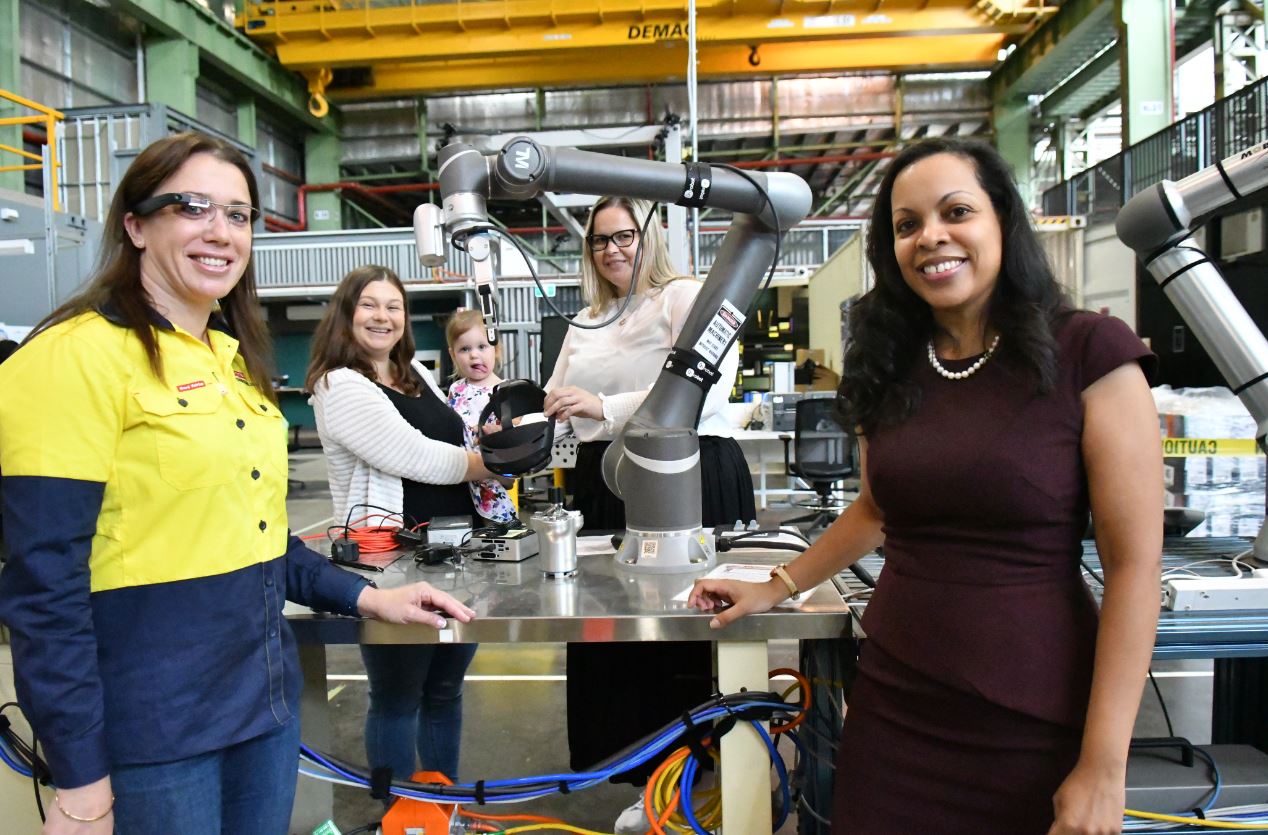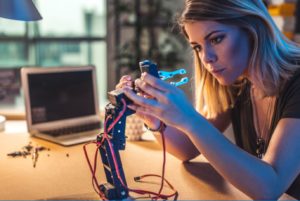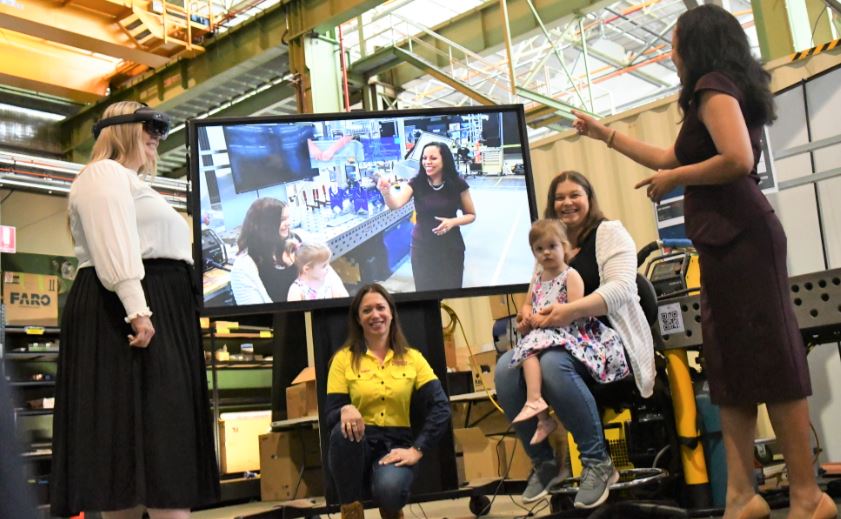
On International Women’s Day, Flinders University is celebrating the achievements of more than 120 women undertaking the award-winning Diploma of Digital Technologies this year.
With 80 new students starting this month, it’s a 100% female intake this year thanks to special targeted funding from the Federal Government Women in STEM Cadetships and Advanced Apprenticeship Program.
This compares to the first intake of 51 students who graduated last year, which had only one woman and 50 men.
These 120 women contribute to strategic national priority industry objectives of making major inroads into having more women enrolled in STEM programs, says Professor in Innovation Giselle Rampersad, from the Centre for Defence Engineering Research and Training at Flinders University.

“In addition to women in industry, we also have a high number of STEM teachers in the program from across Australia to inspire and grow the pipeline of a diverse and future enabled workforce,” she says, adding diversity is vital in all science, technology, engineering, mathematics as well as medicine (or ‘STEMM’), and other fields.
Online and intensive workshops deliver expert training in topics including 3D printing, robotics, IoT hubs, electronics, design and CAD, innovation, cybersecurity and Industry 4.0.
“Encouraging more women in STEM is critical is increasing opportunity in engineering and defence for under-represented groups.
“We have expanded the program to a broader range of defence segments throughout Australia from maritime to aerospace in various States and Territories and other companies including small and medium enterprises in the supply chain.
“This has contributed towards strategic impact in building a digital enabled and diverse workforce for the defence industry, the STEMM pipeline and related sectors. “

“Our ambition is to expand the program nationally and internationally with collaborators with a shared vision and strategic impact on innovation, advanced manufacturing and digital transformation of their workforces, industries and companies to further impact on SA, nationally and internationally,” Professor Rampersad says.
The students starting this year add to the 90 students continuing from last year (who started across semesters 1 and 2 in 2021), to tally over 170 students from about 80 organisations.
The program also has more than 30 rural and remote female participants including from Alice Springs, Mount Gambier, Riverland, Clare, Port Lincoln, Balaklava and the Mid North.
Professor Rampersad also says the program has met another significant milestone this year with 50 interstate female participants from every State and Territory in Australia, with several participants in Queensland from Boeing Defence involved in aerospace manufacturing, Lockheed Martin in NSW and SA, small and medium sized enterprises, Nova Systems and BAE sites around the country.
BAE Systems Australia Chief People Officer Danielle Mesa says: “This has been a great program that started with upskilling shipbuilders for the future – but it’s now so much more than that.”
“Now it’s not just ensuring our people are ready to embrace the new technologies needed for the Hunter Class Frigate Program but the broader defence manufacturing industry which is undergoing rapid change,” she says.
Incoming student Mrs Laurie Tonks, a cybersecurity compliance analyst with Australian-owned global company Nova Systems, says the course will widen her career horizons and support her current role.
“I am extremely keen to build on my knowledge of how cybersecurity fits in with the future of automation, robotics and Industry 4.0, particularly in light of the expanding defence sector in South Australia,” the 34-year-old young mum says. “This part-time subsidised course also gives me the flexibility to manage work and home life,” she says.
Professor Rampersad says the course could also expand to other industries including renewables, space and medical technologies.
“There is outstanding innovation happening in SA, which is an exemplar model for developing a future enabled workforce in collaboration with industry, for economic development and jobs growth for our young people.

